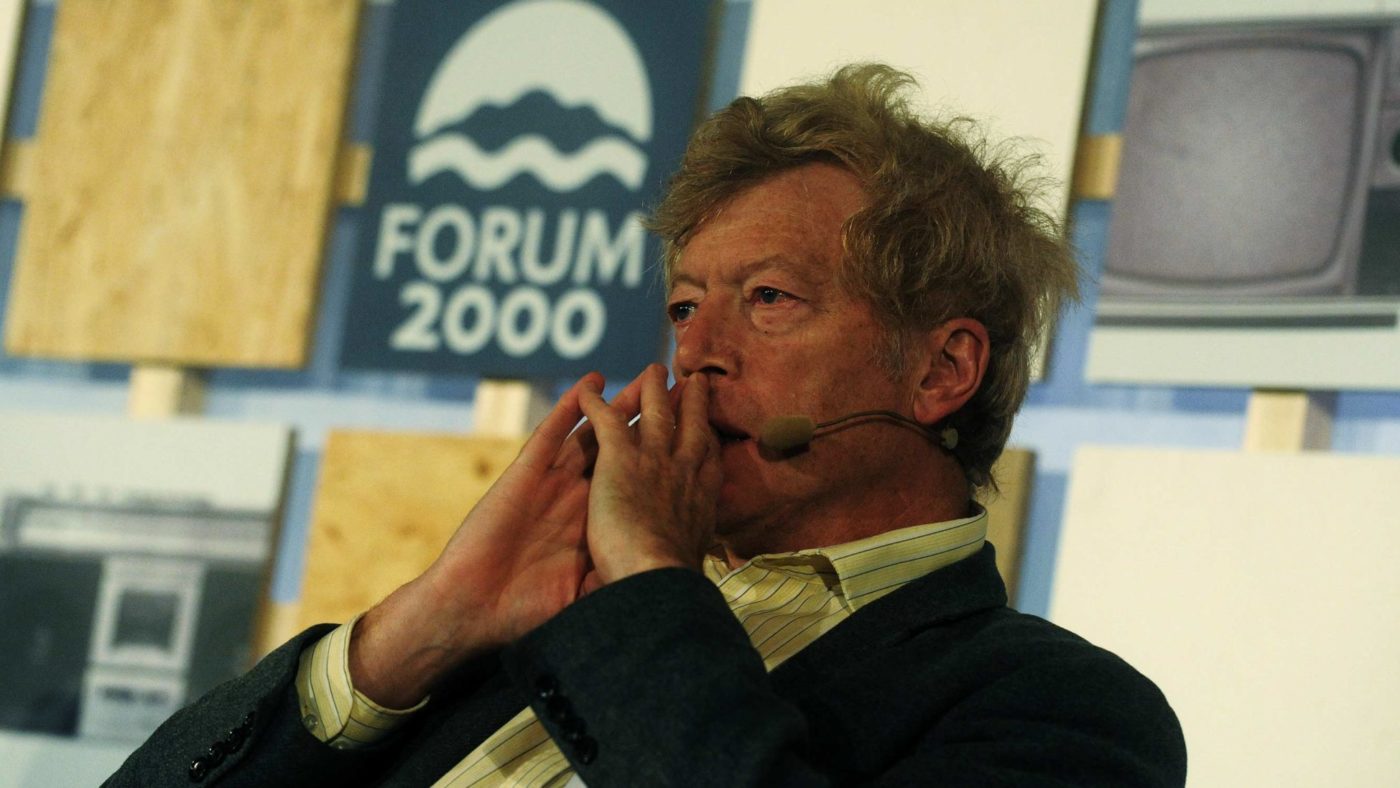Sir Roger Scruton has written that the “seeming open-mindedness” of modern liberalism “is just as determined to silence the heretic as any established religion”. “There may be no knowing in advance how the new heresies could be committed, or what exactly they are,” he wrote in an article in The Times, “since the ethic of non-discrimination is constantly evolving to undo distinctions that were only yesterday part of the fabric of reality.”
The philosopher understands thoroughly the process by which people are hounded out of public life for expressing opinions that do not conform with a narrow, constantly changing orthodoxy, established and policed principally by left-leaning academics. Accordingly, the campaign to have him sacked as chairman of the “Building Better, Building Beautiful” commission — which is charged with promoting the construction of more attractive homes — is unlikely to have taken Scruton by surprise.
On Saturday, the Housing Secretary, James Brokenshire. announced that Scruton would lead the government’s new housing panel and examine how the planning system, “can encourage and incentivise a greater emphasis on design, style and community consent”. The appointment of a leading conservative thinker and traditionalist to this unpaid post drew a depressing and predictable response.
The Guardian wasted no time describing Scruton as “the Alf Garnett of architecture” and traced his career back to the height of the “Thatcher regime”, as if he was once the creature of some kind of right-wing junta. Labour MPs quickly demanded that Brokenshire sack him, prompted by a series of articles on the website Red Roar accusing him of homophobia and anti-Semitism.
Before long, decades of Scruton’s writings and pronouncements were being mined for possible thought-crimes and the familiar leftwing witch-hunt was in full cry on social media. The Corbynite journalist, Owen Jones, who specialises in inflaming the online mob, shrieked about the “housing tsar’s” offences against Islam and the LGBT community. Oddly, or perhaps not, he had less to say about Scruton’s supposed anti-Semitism.
On that subject, the Labour backbencher, Wes Streeting, accused the academic of propagating anti-Jewish conspiracy theories. The source for this allegation was a lecture that Scruton delivered in Budapest in 2014, on The Need for Nations. During his talk, he highlighted the influence of George Soros and his web of organisations, among Jewish intellectuals in Hungary.
His point was that many Jews are “rightly suspicious of nationalism” in Europe, regarding it as “the major cause of the tragedy of Central Europe in the 20th century”. At the same time, he challenged indigenous anti-Semitism in Hungary, observing that it impedes the “emergence of a shared national loyalty”. In the past, he has defended Israel’s right to intervene militarily against its enemies in the Middle East, like Hezbollah.
It’s difficult to misrepresent and caricature the views of a thinker as subtle as Scruton, but it can be done if his arguments are stripped of their context shamelessly enough.
He was making serious and thoughtful points about Soros’s influence on politics, linking the financier’s views on nationalism with historical events in Europe. Scruton’s concern was to “distinguish nationalism from the kind of national loyalty” upon which successful states are built. He believes that a shared allegiance, rooted in a sense of place, is the best way to avoid fragmentation, failure and crises of legitimacy, with people becoming alienated from their political leaders.
Critics who describe these ideas as a “conspiracy theory” either don’t care about their actual content or haven’t taken the trouble to understand them. And the same is true when they attack Scruton’s views on homosexuality and Islam, or his denunciation of the invention of “phobias” to control the boundaries of debate. These highly personalised assaults imply that thinkers should simply accept that they cannot question and discuss the fundamentals of some topics. It’s a horrifying insight, that supports many of Scruton’s most penetrating observations about the demonisation of conservative thought.
We’ve seen similar campaigns before, directed against Toby Young and other right-leaning people who have been appointed to high-profile positions. Yet the aggression directed at Scruton is particularly shocking because he always articulates his ideas in such an unwavering tone of civility and moderation. This is a man who has spent a lifetime thinking, writing and debating. Nobody would expect to agree with everything that he has said or written, but Scruton is an intellectual of the highest calibre, who is renowned across the world. His arguments are thorough, thoughtful and eloquent; the antithesis of invective or hate speech.
We’re talking here about one of our country’s most important thinkers and one of its most elegant writers. If he is not fit to contribute to popular debate, then no-one is. Ideally, we could do with running every aspect of government policy past Roger Scruton.
If the campaign to have him sacked is successful, we must ask what has our society become, when our finest living philosopher is barred from public life because opponents of his ideas say that they are unacceptable.


